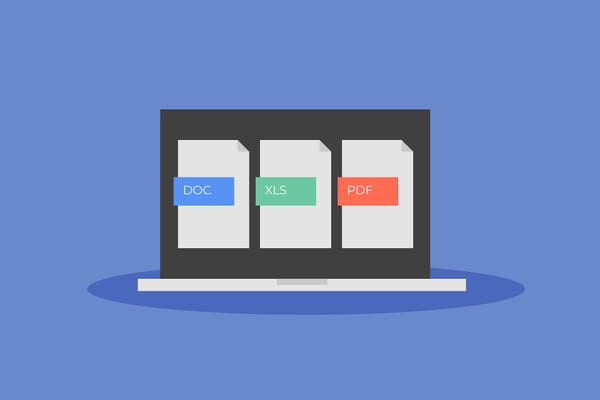Best Ways to Find Small Business Grants—Without Falling for Scams

Finding the right funding can make a huge difference when starting or expanding a small business. Grants are particularly attractive because, unlike loans, they don't need to be repaid. However, their popularity has also made them a target for scammers who take advantage of business owners seeking financial support.
You might come across ads or messages claiming you've been "selected" for a government grant or that "free money" is available for small businesses. Unfortunately, many of these offers are scams. Fraudsters often pose as government agencies, grantmaking organizations, or foundations to trick people into handing over personal information or paying upfront fees.
How Scammers Try to Trick You
Grant scams appear in many forms, from online ads and cold calls to emails and social media messages. Here's what to look out for:
- Unsolicited Offers of "Free Money" – If you receive an unexpected call, email, or social media message claiming you qualify for a government or business grant, be skeptical. Real grants require an application process and are not randomly awarded.
- Impersonating Government Agencies – Scammers might claim to be from real government offices like the Small Business Administration or create fake agency names like the "Federal Grants Administration" (which doesn't exist). They may even manipulate caller ID to make their phone number look official.
- Requests for Personal or Financial Information – Fraudsters often ask for sensitive details like your Social Security Number or business tax ID, claiming they need to verify your eligibility. They may also request bank account details under the pretense of depositing funds. Or they'll ask you to pay those fees with a gift card, cash reload card, wire transfer, or cryptocurrency. That's always a scam.
- Upfront Payment Requirements – No legitimate grant will ask you to pay fees to apply or receive funding. If you're told to cover "processing" or "administrative" costs using wire transfers, gift cards, or cryptocurrency, it's a scam.
- High-Pressure Tactics – Scammers create a sense of urgency, telling you to act fast before funding "runs out." Real grants have deadlines, but they don't pressure applicants to make immediate decisions.
- Vague or Missing Grant Details – Genuine grant programs provide clear eligibility criteria, application steps, deadlines, and restrictions on how the funds can be used. If an offer lacks this information or seems too good to be true, it likely is.
Scammers can be very convincing. They might promise a refund if you're not satisfied, but that's a lie. Once you provide your bank account information or pay any fees, your money will vanish, and you will never receive the grant they promised.
Related: Loan Scams Uncovered. Protect Your Identity and Money
Questions to Ask Yourself Before Applying for a Grant
Before applying for a grant, take a step back and ask yourself these key questions to determine if the opportunity might be a scam.
Did You Apply for This Grant?
One of the biggest red flags is receiving a notification that you have been awarded a grant you never applied for. Legitimate grants require an application process, and eligibility criteria must be met. If an offer appears out of nowhere, claiming you have already been selected for funding, it is likely a scam.
Are They Asking for Personal or Financial Information?
A real grant provider will never ask for sensitive details such as your Social Security Number, banking information, or upfront payments before you have completed an official application. Only scammers demand "processing fees" or claim they need your bank details to deposit the funds.
Who Is Offering the Grant?
Always verify the source of a grant before applying. Authentic grants come from government agencies, well-known nonprofit organizations, or established foundations. To confirm a grant's legitimacy, check official websites like Grants.gov or look for government agencies that use a ".gov" domain. If the grant provider is unfamiliar, do a search to see if they have a history of funding real businesses.
How Were You Contacted?
Legitimate grant providers do not reach out to individuals through unsolicited phone calls, random emails, or social media messages. If you receive a message out of the blue claiming you qualify for a grant, be cautious.
Real grant notifications typically come through formal channels after an application has been submitted. If a message feels unprofessional or is riddled with claims of urgency, it is best to verify the grant offer independently before engaging.
Does the Grant Match Your Business or Industry?
Many fraudulent grant offers are vague and overly broad, claiming to provide funding for everything from education to home repairs and business growth. Legitimate grants are typically designed for specific industries, purposes, or business sizes. If a funding offer does not align with your business or its goals, that is a strong sign it may not be real.
Where to Find Legitimate Small Business Grants
Stick to reliable sources. Here are a few examples:
Government Grant Programs
Government agencies offer various grants to support small businesses. In the United States, official sources include:
- Grants.gov – The federal government's primary grant portal, listing available funding opportunities and application details.
- The Small Business Administration (SBA) – Provides grants and other funding programs for small businesses, particularly in research, exporting, and disaster recovery.
- State and local small business development agencies – Many states and cities offer grants through Small Business Development Centers (SBDCs). Check with your local SBDC to see what funding options are available.
Always verify grant programs through official government websites, which use ".gov" in their web addresses.
Private Foundations and Corporate Grants
Many large companies and nonprofit organizations offer grants to help small businesses grow. Some well-known programs include:
- FedEx Small Business Grant Contest – Awards funding to innovative and growing small businesses.
- Cartier Women's Initiative – A program supporting female entrepreneurs through funding, mentorship, and networking opportunities.
- Amber Grant for Women – A monthly grant awarded to women-owned businesses, with additional funding opportunities for specific industries.
- Comcast RISE – Offers grants, marketing support, and technology resources to minority- and women-owned small businesses.
Local and Industry-Specific Grants
Economic development offices at the city and state level sometimes offer grants to encourage business growth in their communities. Some industry-focused grants include:
- National Association for the Self-Employed (NASE) Growth Grants – Provides up to $4,000 for small businesses to invest in growth opportunities.
- USDA Rural Business Development Grants – Supports small businesses in rural areas with funding for expansion and innovation.
- Hello Alice Small Business Grants – A platform that connects small business owners with grant opportunities tailored to their industry and needs.
Checking with professional associations in your industry can also help you find sector-specific funding.
Trusted Grant Search Resources
To make your search easier, use well-known grant databases that list verified opportunities:
- GrantStation – A comprehensive database of grants for businesses, nonprofits, and researchers.
- Grants.gov – The go-to source for federal grant listings and application instructions.
Related: The Worst Small Business Tax Scams of 2024 and How to Avoid Them in 2025
What to Do If You Encounter a Grant Scam
If you suspect a grant offer is fake, report it and take steps to protect yourself. Scammers target multiple victims, so reporting suspicious activity can help prevent others from falling for the same scheme.
If you come across a fake grant, report it to the authorities:
- The Federal Trade Commission (FTC) (US) – File a report at ReportFraud.ftc.gov. The FTC collects complaints and shares them with police to help track and investigate scams.
- Your country's consumer protection agency – If you are outside the United States, report the scam to your local consumer protection agency.
- The website or platform where you found the scam – If you saw the scam on a website, social media platform, or online marketplace, report it directly to the platform to help get the fraudulent content removed.
Protecting Yourself After a Scam Attempt
If you shared personal or financial information with a scammer, take action immediately:
- Monitor your bank and credit card statements for unauthorized transactions.
- Check your credit report for unusual activity, such as new accounts opened in your name.
- Consider using an identity protection service to track any misuse of your personal information.
- Update passwords and security settings on your business and personal accounts to prevent unauthorized access.
- Consider using Bitdefender Ultimate Small Business Security, which includes Scam Protection and Digital Identity Monitoring to help keep your business safe from fraud attempts.
FAQs
How can I tell if a small business grant is legitimate?
A legitimate grant will always have a clear application process, eligibility criteria, and official documentation. Real grants do not require upfront fees, ask for sensitive personal information before approval, or pressure you to act immediately. To verify a grant's authenticity, check official sources such as Grants.gov or the Small Business Administration (SBA). Avoid unsolicited messages claiming you have already been awarded a grant you never applied for.
What are the most common small business grant scams?
The most common small business grant scams involve fraudsters impersonating government agencies, offering "free money" with no application, and demanding upfront payments for processing fees. Scammers often use fake websites, emails, or social media messages to trick business owners into sharing sensitive information. Be cautious of any grant offer that requires wire transfers, gift cards, or cryptocurrency payments, as these are major red flags. Always research the grant provider before applying.
Where is the safest place to find small business grants?
The safest places to find small business grants are official government and nonprofit websites. Trusted sources include Grants.gov for federal funding, the Small Business Administration (SBA) for US business grants, and Hello Alice for private grant opportunities. Check your state's small business development agency or local economic development programs for additional funding options. Always verify a grant's legitimacy before applying to avoid scams.
tags
Author
Cristina is a freelance writer and a mother of two living in Denmark. Her 15 years experience in communication includes developing content for tv, online, mobile apps, and a chatbot.
View all postsRight now Top posts
How to Protect Your WhatsApp from Hackers and Scammers – 8 Key Settings and Best Practices
April 03, 2025
Outpacing Cyberthreats: Bitdefender Together with Scuderia Ferrari HP in 2025
March 12, 2025
Streamjacking Scams On YouTube Leverage CS2 Pro Player Championships to Defraud Gamers
February 20, 2025
How to Identify and Protect Yourself from Gaming Laptop Scams
February 11, 2025
FOLLOW US ON SOCIAL MEDIA
You might also like
Bookmarks







